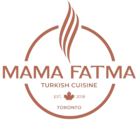Explore the rich cultural and religious meanings of Ramadan, its traditions, and practices, in this insightful blog from Mama Fatma’s Turkish Cuisine.
Blog Contents
ToggleWhat Is Ramadan?
The Arabic word “Ramidha” or “Ar-Ramad,” which signifies very hot and severe temperatures, is where the phrase “Ramadan” first appeared. Its origin also comes from the term “Ramdha,” which means sun-baked sand. Arabs used these names in the past to refer to terrain that was heated by the sun.
Ramadan holds significant reverence in the Islamic calendar as one of the most sacred months. Ramadan is a holy month that marks the first revelation of the Quran to the Prophet Muhammad. Ramadan is one of the five pillars of Islam, along with faith, prayer, charity, and pilgrimage. During this time, Muslims abstain from food and drink during daylight hours as a way to deepen their connection with God. Alongside that, they encourage and practice qualities like self-discipline, gratitude, and empathy towards those in need. Ramadan is a time of deep spiritual refreshment, featuring increased loyalty expressed by frequent reading of the Qur’an as well as involvement in special prayers. The need to fast is not applicable to those who are incapable of fasting, such as nursing or pregnant women, the sick, the old, or children.
During Ramadan, a Muslim family wakes up before dawn for a small meal called suhur and morning prayers. At sunset, they break their fast with dates and water, followed by a light meal called iftar. After sunset prayers, they have dinner.

When Is Ramadan?
Muslims observe a predawn to sunset fast, lasting between 11 and 16 hours for a duration of 29 to 30 days, depending on the season. Based on a 12-month lunar year with around 354 days, the Islamic calendar has Ramadan as its ninth month. The lunar month advances 11 days ahead of the solar month every year due to the lunar year’s 11-day difference in length. The lunar months cycle through 33 solar years ultimately returning to the same season. The new moon’s appearance signals the start and end of the month as the norm. On another note, a lot of Muslims now follow an established date that depends on astronomical estimates. Then, when is Ramadan 2024 and how long is Ramadan?
Muslims observe a predawn to sunset fast, lasting between 11 and 16 hours for a duration of 29 to 30 days, and that depends on the season.
Cultural Significance of Ramadan: Sharing and Solidarity
In Ramadan, Muslims fast for a month, which greatly develops self-control, regulates emotions, and, most importantly, heightens social awareness. Ramadan is also known as the month of caring as sharing is one of the customs observed during this time of year. Muslims seek to share and perform charitable deeds throughout this holy month. This high degree of communal tolerance is seen in the large number of individuals sharing groceries, takjil, food, and other necessities.
During the month of Ramadan, there are several advantages of sharing. It may, most importantly, strengthen the bonds of solidarity and cooperation among Muslims. One of the most significant and often stressed virtues in Islam is sharing. People may experience a feeling of community and concern for one another, both those known and those who are not, by sharing during the month of Ramadan.

Rise in Patience and Tolerance: Ramadan’s Communication Impact
Fasting during Ramadan teaches us important values like patience, peace, tolerance, and serving humanity, all rooted in the fear and reverence for Allah. It is crucial for Muslims to practice patience and peace during Ramadan. With that they can promote harmony and serve humanity with the blessings bestowed by Allah.
Sharing throughout Ramadan might help people become more compassionate toward other people. Sharing food with others is encouraged by fasting since it develops tolerance, empathy, and the ability to understand what it’s like to be hungry and thirsty. Fasting may also increase one’s empathy for others around them.
Prevention of Food Waste and Sustainability Consciousness
It is taught to Muslims that wasting food and polluting the environment this way is a sin. Muslims emphasize being ecologically responsible and minimizing food waste during Ramadan. Since Ramadan is a month of sharing, patience and tolerance, Muslims share food with those in need in Ramadan, and this fact greatly contributes to the prevention of food waste and sustainability consciousness. Muslims take only what they need, and plan community meals well to avoid having leftovers. Choosing sustainable solutions and cutting waste are some topics that are gaining popularity. Mosques and Islamic organizations promote eco-friendly behaviours like recycling while educating the public about these problems. In general, Ramadan promotes introspection and action aimed at protecting the environment and other people.
Ramadan Culture in Canada: The Right Address for Iftar Dinner Mama Fatma
Mama Fatma is a Turkish restaurant in Canada. Mama Fatma is best known for the fact that it serves tasty halal food. The cuisine of Mama Fatma is a colorful mosaic of Turkish delights, each dish lovingly prepared using the best halal ingredients and traditional methods. By providing a friendly ambience as well as a varied selection of classic Turkish cuisine, it’s a well-liked option for iftar evenings. From antrikot, shaslik, lamb chops, various kebab options, and sac tava to kayseri mantisi and ali nazik, Mama Fatma is a perfect place for a tasty iftar dinner. Mama Fatma’s dedication to authenticity and quality guarantees that diners get a special meal that embodies the spirit of Ramadan and unites people in celebration.
Diners can also make reservations through Mama Fatma’s website, https://mamafatma.com, for a perfect and tasty iftar dinner!
2024 Ramadan Calendar for Mississauga
In Mississauga, Ramadan 2024 begins on March 12, 2024, and finishes on April 09, 2024. Mississauga’s iftar and sehri timetable varies each day.



